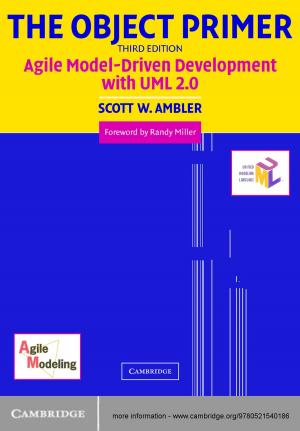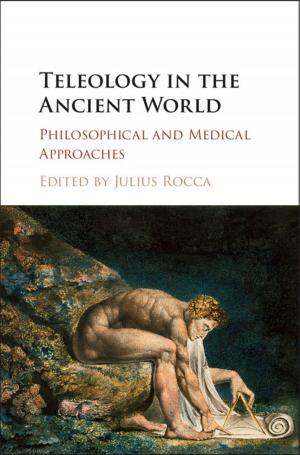Towards Discursive Education
Philosophy, Technology, and Modern Education
Nonfiction, Reference & Language, Education & Teaching, Religion & Spirituality, Philosophy, Health & Well Being, Psychology| Author: | Christina E. Erneling | ISBN: | 9780511850585 |
| Publisher: | Cambridge University Press | Publication: | September 16, 2010 |
| Imprint: | Cambridge University Press | Language: | English |
| Author: | Christina E. Erneling |
| ISBN: | 9780511850585 |
| Publisher: | Cambridge University Press |
| Publication: | September 16, 2010 |
| Imprint: | Cambridge University Press |
| Language: | English |
As technology continues to advance, the use of computers and the Internet in educational environments has immensely increased. But just how effective has their use been in enhancing children's learning? In this thought-provoking book, Christina E. Erneling conducts a thorough investigation of scholarly journal articles on how computers and the Internet affect learning. She critiques the influential pedagogical theories informing the use of computers in schools - in particular those of Jean Piaget and 'theory of mind' psychology. Erneling introduces and argues for a discursive approach to learning based on the philosophy of Ludwig Wittgenstein and the psychology of Lev Vygotsky. This book not only addresses an urgent pedagogical problem in depth, but also challenges dominant assumptions about learning in both developmental psychology and cognitive science.
As technology continues to advance, the use of computers and the Internet in educational environments has immensely increased. But just how effective has their use been in enhancing children's learning? In this thought-provoking book, Christina E. Erneling conducts a thorough investigation of scholarly journal articles on how computers and the Internet affect learning. She critiques the influential pedagogical theories informing the use of computers in schools - in particular those of Jean Piaget and 'theory of mind' psychology. Erneling introduces and argues for a discursive approach to learning based on the philosophy of Ludwig Wittgenstein and the psychology of Lev Vygotsky. This book not only addresses an urgent pedagogical problem in depth, but also challenges dominant assumptions about learning in both developmental psychology and cognitive science.















